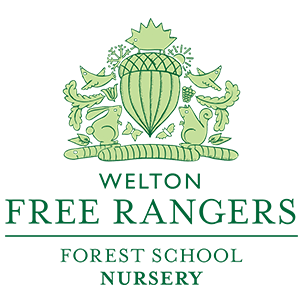In this post I want to handle the delicate topic of the language we give to children and how it effects their self-confidence and belief. To start, here are two examples of children at nurseries where I have worked: S and S were working in the sandpit. Their canvases were the slate tiles, their medium was wet chalk, sand and grass. Their method of working involved colouring a slate piece, covering it first with sand and then grass then colouring through the sand once again. As other children came to look they invited them into their play, worked alongside them and explained their methods; once they had sufficient pieces of work they moved them to the playhouse and told me with great enthusiasm (and the sort of poses that children love to use to emphasise points) "We're being artists: we're artists!".
T went to the art area and chose a piece of paper, he told me "I'm going to do some fingerpainting, my Mum says I'm good at art". He worked quietly by himself until he felt that his piece of work was finished, put it to dry and went to find another activity
Compare those two phrases "We're artists" to "my Mum says I'm good at art" they seem so similar and (I have to state) that they both come from children with very positive views but what do they really mean?
At Free Rangers we strive to stretch and challenge our children but that can only happen if they wish to do the same for themselves, we want to focus on the process that the child has gone through rather than just highlight the end result.

A little while ago I was at a conference at Pen Green that was led by the wonderful Margaret Carr where she spoke about the learning dispositions of children and how the purpose of education is to inspire a desire to learn, rather than to tick boxes
"The fundamental purpose of education for the 21st Century, it is argued, is not so much the transmission of particular bodies of knowledge, skill and understanding as facilitating the development of the capacity and the confidence to engage in lifelong learning. Central to this enterprise is the development of positive learning dispositions, such as resilience, playfulness and reciprocity.” - Carr 2002
One particular point that was brought up was the responses that adults gave to children's work and in particular, the emphasis that they could put on the finished product. To paraphrase some anecdotal evidence:
"Two groups of children were given a puzzle to do, both succeeded but after completing the puzzle one group were told 'well done, you did the puzzle' and the other were told 'well done for working so hard on that'. When the groups were offered another, harder puzzle to do the former refused as they felt they had already succeeded enough whereas the latter group were keen to work hard again for a greater sense of self-satisfaction"
Interesting eh? Let's apply this to the two examples at the start of the piece; "we're artists" sets out the role of the child, it doesn't hem it in, they were existing under their self defined title, one that gave them the drive to create a methodology of working that drew others in and changed as the play progressed. Their title was just a defining parameter of their play. On the other hand "my Mum says I'm good at art" is a title that has been placed by another on the child, one that allows no direct progression as the child can produce work safe in the knowledge that he has succeeded before he has begun.
Here are some simple steps to support children's efforts:
- When children bring us work that they've done, they are already proud of it, they want to show it: comment on something that you notice to start conversation
- Acknowledge the child's feelings "I can see you look very proud of that" or "your smile shows me that you're pleased with your work
- Avoid rhetorical questions such as "Have you done some art?" or "Have you been painting?" the child knows what they've been doing, offer stimulating comments and you will hear what they're really thinking
- Stay clear of ending the conversation before the child is ready, don't be scared of silences, give the child time to think as they may be taking in your comments
Have fun; if you have any art that your children want to show us, please bring it in and we'll add it to our "I have done, I am proud of..." board in the art area!

